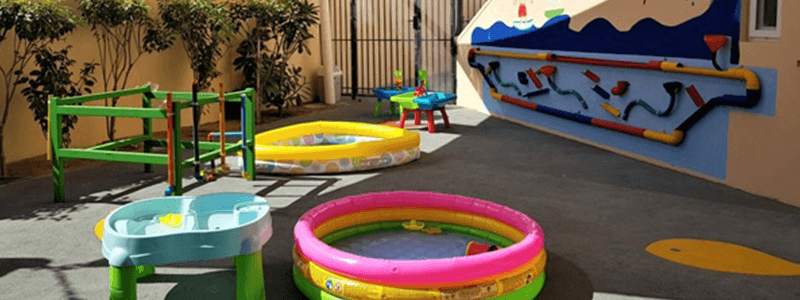
The weather is getting better and we are so excited that the children are going to be spending so much more time in the outdoor area. We are lucky to have shaded water areas so they can spend even longer playing without being exposed to direct sunlight.
We have recently added new features to our water area and they are hugely popular with all the little ones! Water play has so many important benefits for a child’s development in different areas and helps them to grow and develop in essential areas.
Problem-Solving Skills
Water play is an open-ended activity where children have endless opportunities for exploration and discoveries. Water play provides children with a hands on approach in which they can learn about the world around them. It also stimulates creativity and imagination which pays a major role in problem solving.

Physical Development
Actions such as pouring, squeezing, stirring, squirting and squeezing help children develop fine and gross motor skills. Water play also helps develop balance, strength and coordination. By reaching out to try to grasp the water and feel the flow, children are also exposed to sensory activities which have a range of benefits for their development. Carrying buckets, pouring water and simple actions such as kicking and splashing do wonders for physical development, coordination and stamina. Kicking movements engage the core, and can help children learn how to coordinate both sides of their body to move through the water.
Social Social and emotional development
Children develop social and communication skills through working with each other in groups and learning to take turns. They learn to play with one another, follow each other’s ideas and even come up with their own ideas for others to follow. Through this interaction with each other and the discovering of things in shared spaces, children develop both socially and emotionally.
Language and Math
Water play introduces children to basic mathematical concepts such as full, empty, less and more. It also involves the use of concepts such as volume, measurement and estimation and learning when something is too full. Conversation with adults can help enhance vocabulary as children learn words like filter, pour, squirt, squeeze and so much more. Continual conversation means children can learn how to use the new words that they have learned during water play.



